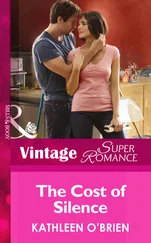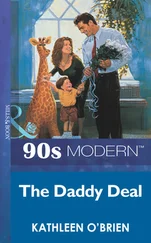They sold a lot of trees, she noticed. The effect was primarily green. But when she looked carefully, she spied the sprinkles of color.
Crocus, forsythia, daffodil...
Bulbs, already? Nervously, she glanced at the sky. March was a dangerous month. Spring was so close. You could smell the promise of warmth, floating behind the chill. The temptation to rush the planting was almost irresistible. But frost and snow remained a threat for at least another couple of months, and gardeners who forgot that often regretted it.
A little like her own situation, wasn’t it? Her winter of exile had lasted almost two years. Now she was down to thirty days, and she could feel her impatience rising. She could feel herself wanting to rush, to let down her guard, to take risks and dream of spring.
She wondered whether Crystal Eden was hiring. Sometimes, in spring, nurseries added staff as customers poured in, hungry for rebirth. She’d worked at other nurseries along the way. Once, she and Mitch had both landed jobs at the same tree farm.... Virginia, she thought, or maybe it had been in Kentucky. Summer...June or July. Every day, they’d come back to their hotel hot, sweaty and half-mad from working alongside each other, forbidden to touch.
She shook away the thought. She didn’t need a job, of course. When she first went on the run, she’d brought enough money to see her through five years, if she were careful. She’d had no way of knowing how long the ordeal would last.
But it had lasted only two. How was that possible? Just two short years, and already her mother was dead. Most of the money she’d started with was untouched.
Still, she wanted to work. What else would she do with her days, with her mind? How else would she feel a part of the living world? What else would keep her from going mad?
“Someone picking you up?” Edna was back, and her expression warned Bonnie she’d been letting her emotions show on her face. “You’re not driving, are you?”
“Just as far as the hotel.” Bonnie tried to sound reassuringly competent. “Then I think I’ll sleep all day.”
As Edna turned, Bonnie called out impulsively. “What’s the weather report, do you know? Are they calling for any snow this week?”
Edna shrugged. “Don’t think so. But you know March. At least if you’re from around here, you do.”
Her curious eyes invited Bonnie to share, but no amount of tired could ever make Bonnie be that foolish.
“Good,” Bonnie said. She wondered how crazy Edna would think her if she knew she was worrying about those vulnerable forsythia and crocus across the street. “I hate driving in the snow.”
Edna laughed and, giving up, moved on. Bonnie transferred her gaze back to the window. She’d hoped to get farther away before she hunkered down to serve her remaining days. Ohio, maybe. Or, even better, New England. Every mile was safety, another layer of protection.
But Colorado Springs was a decent-size town. Sacramento was already eighteen hours behind her, and even if Jacob was looking for her, he couldn’t be sure which direction she’d headed.
She stopped herself. If he was looking for her? There was no “if” about it. Her mother’s death had lit the fuse. The end would come, one way or another, in thirty days. Jacob knew that just as well as she did.
But maybe sprinting to the other edge of the map was the chess move he expected her to make and paradoxically would be the least secure.
Oh, God. She rubbed her face hard with both hands, unable to bear the twisted, looping logic. For two years, she’d second-guessed every decision this way.
She couldn’t think straight anymore. Her brain was dazed, as if the pain of the past few days were the equivalent of blunt force trauma.
She folded her place-mat calendar into a neat rectangle small enough to fit in her purse. Picking up her check, she slid her chair back and headed for the register. As she paid—cash, of course—she kept her eyes on the landscape boulders and evergreens in the Eden across the street.
Someone opened the door, and she heard a wind chime blow in the breeze, its notes wafting easily across the clean, crisp air. The sound reminded her piercingly of Bell River—though she couldn’t quite say why.
But suddenly she had her answer. She was tired of running. Every mile took her farther from Mitch. Whether he wanted her or not, he would always be the fixed foot of her life’s compass. Everywhere she went, forevermore, she would measure it in terms of how far it was from Mitch.
This was far enough. Any farther and she might not be able to breathe. If she could get a job, she’d stay.
CHAPTER TWO
“YOU’RE JOKING.” Mitch stared down at the dense paragraphs of legal mumbo jumbo, knowing he should be trying to read the document he held but unable to register anything except the ludicrously large number. It was such a big number it seemed to pulse and glow slightly on the page.
“You’re trying to tell me somebody already wants to buy and make the stupid thing? And they want to pay...”
He couldn’t even say the number out loud. This absolutely had to be a joke. He wasn’t an inventor or an overnight success story. He was the younger Garwood boy. The party boy. The goof. The one who had resisted growing up so long his big brother, Dallas, secretly feared he never would.
Surely this was a prank. If he fell for it, Dallas would jump out from behind the door and die laughing.
But Indiana Dunchik, Mitch’s well-respected patent lawyer—also known as Ana, though not to Mitch—hadn’t cracked a smile. She was a gorgeous blonde he’d hired because she worked out of Grand Junction, not Silverdell. Therefore, she was less likely to think it was by definition preposterous that Mitch Garwood, screwup extraordinaire, might’ve invented something worthwhile.
Okay, that, and she was a gorgeous blonde.
Obviously, he hadn’t hired her for her sense of humor. She seemed bewildered that he was chuckling.
“Of course it’s not a jest, Mr. Garwood. Nor is it, in my opinion, a stupid thing. ” She laid her slim pink-tipped fingers flat on her desk. “We’ve spent months getting these patents because we believed your jacket was a marketable and useful product. I’m not surprised we have an offer. In fact, I’ll be surprised if this is the only offer we receive.”
Ordinarily, he disliked the royal “we,” but the truth was, this patent-application process had been such a drawn-out bore, and Ms. Dunchik had wrestled with so many searches, claims, actions and appeals, that he knew full well it had been a joint effort. In fact, she’d had the more difficult half, because when he’d designed the Garwood Chore Jacket he’d mostly been—what else?—screwing around and having fun.
It had all started almost two years ago, when he’d said, “These coats should come with a cheat sheet for the feed formulas. And somewhere to put my phone that I can actually reach it.”
Dallas had rolled his eyes—Mitch was always trying to find a way to do less work. His last “invention” had been a gravity feeder to eliminate all those trips from the loft with buckets. Dallas had laughed at that, too, but it worked.
However, Alec, Mitch’s nephew, had agreed about the jacket wholeheartedly. “We need somewhere to put Tootsie Rolls, too,” he’d added with feeling.
That really got everyone laughing. Bell River Ranch was a family venture—and not even Mitch’s family, except by marriage. Dallas had married Rowena Wright, the oldest of the Wright sisters, who had inherited the gorgeous spread and decided to turn it into a dude ranch.
So everyone assumed that Mitch was just hanging on, working with the horses, his first love, while he decided what to do when he grew up. But, later, Mitch kept thinking about the jacket. He had another idea, for a more comfortable back vent. And then some thoughts about a better, warmer lining.
Читать дальше












